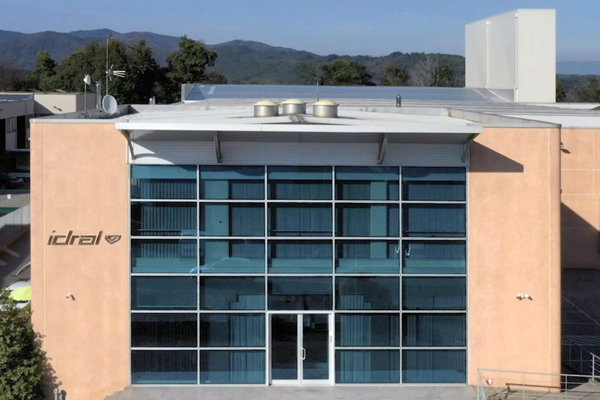
Resource scarcity, price volatility, interdependence between countries ... all difficulties that we are experiencing and facing on a daily basis and that require increasing adaptability and resilience.
At this rate, what awaits us in the future?
One answer, probably the only one, is contained in the sustainability policies promulgated by the world's major decision-makers a few years ago.
So let us try to understand what lies behind the term sustainability, a word that is much abused, but which in the coming years will have a significant impact on the daily lives of each of us, both as companies and as individuals.
Sustainable development is defined as: economic and social development that ensures that the needs of the present generation are met without compromising the ability to meet those of future generations. (UN World Commission on Environment and Development, 1987).
To achieve sustainable development, it is important to harmonise three key elements: economic growth, social inclusion and environmental protection.

On 25 September 2015, the UN General Assembly adopted the 2030 Agenda for Sustainable Development in which it outlines the directions of activities for the next 15 years.
The 17 Sustainable Development Goals that make up the 2030 Agenda represent the global action plan to eradicate poverty, protect the planet and ensure prosperity for all.
The 17 goals refer to different areas of social, economic and environmental development, which must be considered in an integrated manner, as well as the processes that can accompany and foster them in a sustainable manner.
In turn, the European Green Deal is an integral part of the European Commission's strategy
to implement the 2030 Agenda and the UN Sustainable Development Goals.
With the European Green Deal, Europe aims to be the first continent to achieve climate neutrality by becoming a modern, resource-efficient economy.
The European Green Deal is practically a green transformation policy, a pact in which the various actors in the system have to find a new balance to live in:
It is a new growth strategy aimed at transforming the EU into a fair and prosperous society with a modern, resource-efficient and competitive economy that will generate no net greenhouse gas emissions in 2050 and in which economic growth will be decoupled from resource use.
The figure below illustrates the various elements of the Green Deal.

Since the transition will bring about substantial changes, the active participation of citizens and businesses and confidence in the transition are crucial for the policies to work and be accepted.
Economic activity will have to become sustainable, the use of goods and services must already be designed with sustainability and circularity in mind.
SUSTAINABILITY becomes the company's strategy:
Conducting one's business in a sustainable manner means, first and foremost, efficiently and strategically managing the available resources, be they natural, financial, human or relational. In this way, value is generated for the company and it is possible to contribute to the growth, improvement and socio-economic development of the communities in which the company operates and of the actors that make up its value chain.
How to implement corporate sustainability?
The first element to take into account concerns the values and governance model of the company. Both must integrate the principles of sustainability.
A second element, on the other hand, concerns the sustainability of the product (or service) during its life cycle, in line with the principles of the circular economy, so that supply chains are able to regenerate, so that they no longer have to face the difficulties mentioned at the beginning of the article.
The third element can be identified in the operational dimension, i.e. the integration of sustainability principles within business processes. Sustainability cuts across all business functions and processes since it concerns not only 'what the company does' but also 'how it does it'.
To be truly practised, corporate sustainability must become part of the corporate culture. Very often, however, the creation of a corporate culture geared towards corporate sustainability requires the consolidation of sustainable practices within the company. This is why it is important that, even in the absence of a corporate culture specifically oriented towards sustainability, companies take a path, often made up of small steps, that leads to the integration of sustainability into the way they operate, thus laying the foundations for a real transformation of the corporate culture towards sustainability.
And at IDRAL, too, attention in this direction has already begun and a few steps along the long path of sustainability have been taken, to name but a few:
- Expansion of the factory in 2020, respecting all useful measures to optimise energy and climate efficiency, both in terms of the layout and the materials used;
- Replacement of traditional lights throughout the plant with LED lamps;
- Replacement of traditional boilers with condensing boilers;
- 100% recovery of brass machining scraps for reuse as raw material;
- Maximum attention and awareness towards the separate collection of materials resulting from all company processes;
- Use of reusable technical cleaning cloths;
- Replacement of plastic packaging bags with bags made of biodegradable material;
- Use of recycled paper as filling material for shipping boxes;
- Use of FSC-labelled boxes;
- Installation of water filter dispensers to reduce the use of plastic bottles by employees;
And other measures are being implemented:
- Continuous revision of packaging with a view to sustainability (biodegradable bubble wrap, use of FSC Recycled paper and pallets, biodegradable adhesive tapes, etc.);
- Revision of office processes to minimise the use of paper, making maximum use of computerised archiving and digital communication;
- Replacement of paper instructions inside the packaging with QR-codes printed on the label outside the boxes;
- Installation of photovoltaic system;
- Revision of the goods design and procurement process, with a preference for solutions that enable the most sustainable supply chain possible, where technically feasible;
- Continuous improvement of the energy and climate efficiency of company premises.
We will gradually keep you updated on our progress along the path of sustainability, aware that we are facing an enormous challenge with unimaginable repercussions for our future and that of our children.
by Ing. Chiara Vasconi
Administrative Director











